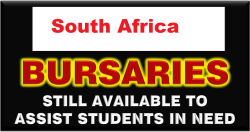- Bursary
- South Africa
- Applications have closed.
The South African National Biodiversity Institute (SANBI) in partnership with the Department of Science and Innovation (DSI) and the Water Research Commission (WRC) is undertaking a project aimed at supporting the objectives of the National Water Research, Development and Innovation (RDI) Roadmap.
The National Water RDI Roadmap intends to bring attention to the water scarcity crisis facing South Africa on a global scale, and to execute water research that is consistent with the country’s broad policy on science and innovation as well as to facilitate partnerships and investment opportunities. The project will address the Water RDI Roadmap’s Supply Cluster 3: Improve adequacy and performance of supply infrastructure through facilitating collaboration between researchers and practitioners.
Catchments represent an appropriate level of water resource governance and management as they consider aspects and land- and water-based activities including abstraction from water resources, and discharge of water back to natural resources after use (Department for Environment Food and Rural Affairs 2013). The catchment approach allows SANBI to work on landscapes in order to prioritize investment in ecological infrastructure.
The project intends to establish Communities of Practice who are concerned with enabling the healthy functioning of ecological infrastructure, knowledge generation, enabling collaboration and learning, and strengthening the management, research and policy feedback loop.
Specific aims of the project include:
- enabling collaboration and learning platforms in Strategic Water Source Areas across South Africa, informed by research, innovation and best practice
- consolidating a network of practitioners growing capacity for transformative social process facilitation (SES) thinking across South Africa
- strengthening and expanding upon our practice of policy advice and mainstreaming capabilities and approaches.
SANBI is calling for applications for bursaries for Masters and Doctoral studies to support the above mentioned project through strengthening research on formal and informal collaboration and learning platforms that strengthen water governance at catchment level. Only research projects in line with the Living Catchment project will be considered. Only full-time studies, with first registration in 2020, will be considered. Students must register at either the University of KwaZulu Natal or Rhodes University.
Requirements
Candidates must be pro-active, enthusiastic, and interested in doing excellent research that can make a difference. These are only available to South African citizens and will be awarded in line with national equity targets. Students need to apply for university programmes themselves, preferably with the university departments identified together with priority projects, and the bursary is conditional upon them securing their placement in a postgraduate programme and having provisional acceptance from prospective academic supervisors, of which one should be from SANBI.
Bursary values (to cover living expenses and university fees)
- Masters: R144 000/year for two years
- Doctoral: R180 000/year for three years.
Project running expenses will be covered separately and will vary depending on the project.
Application procedure
Each application is to be accompanied by a standard application cover sheet.
Applications are to include a letter of interest; full CV; certified copies of academic record/transcript and highest qualification; as well as ID and driver’s license; a project outline; two letters of academic reference; a letter from prospective supervisors indicating willingness to supervise and provisional registration from the university. Send all documents to [email protected] with ‘Living Catchments studentships’ in the subject line.
Catchment collaboration for Ecological infrastructure
Cluster 1
MSc titles:
1. Exploring the role of ecological infrastructure in the development of participatory governance processes in the uMzimvubu River catchment.
This project will investigate the importance of “knowing” and “listening and speaking” about ecological infrastructure – in the process of developing the capacity for local people to engage with governance of their landscapes.
The student will be working in a Water Governance Development research team that is the part of the large DEA-NRM-funded Tsitsa Project. The Governance Development research aims to support the emergence of participatory land and water governance in the Tsitsa River Catchment.
2. An understanding of the systematic approach to water service delivery though interrogating the interdependences between built and ecological infrastructure to support water governance at catchment level.
PhD title:
1. Developing a framework to collaboratively restore ecological infrastructure at a catchment level through understanding the broader social-ecological systems.
To explore the impact of protection/ restoration or not of EI to human wellbeing and human livelihoods. Development of framework(s) that will assess ecological, social and economic trade-offs.
Successful candidates will be notified by 20 February 2020.
If no response has been received within 30 days of the closing date, candidates may assume that their applications were unsuccessful. SANBI reserves the right not to fill these scholarships.
Enquiries:
Dan’sile Cindi (Catchment collaboration projects)
E-mail: [email protected]
René du Toit (Application process)
E-mail: [email protected]
Closes: Friday, 31 January 2020
